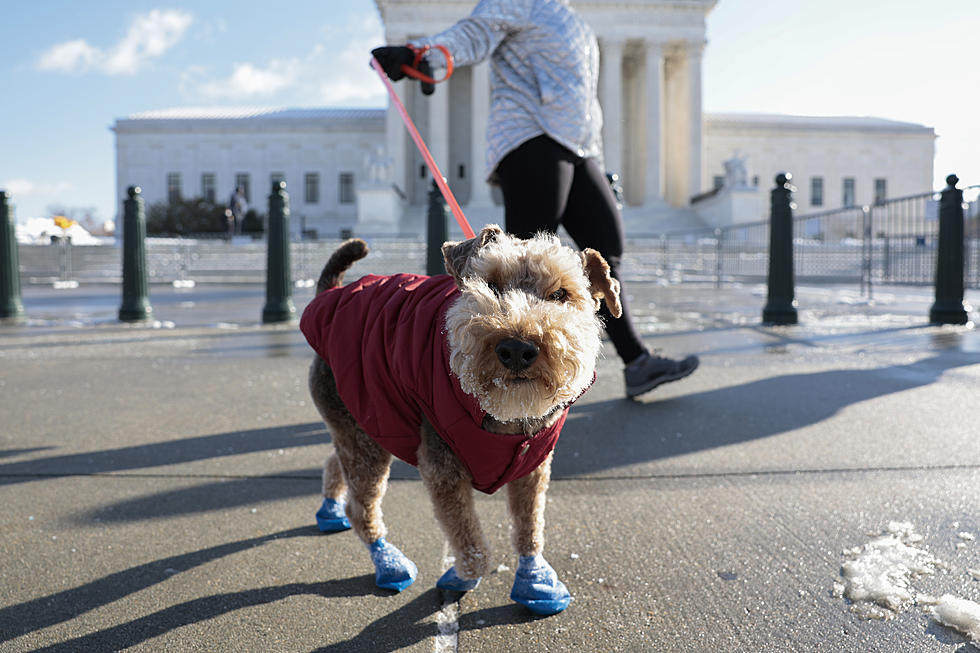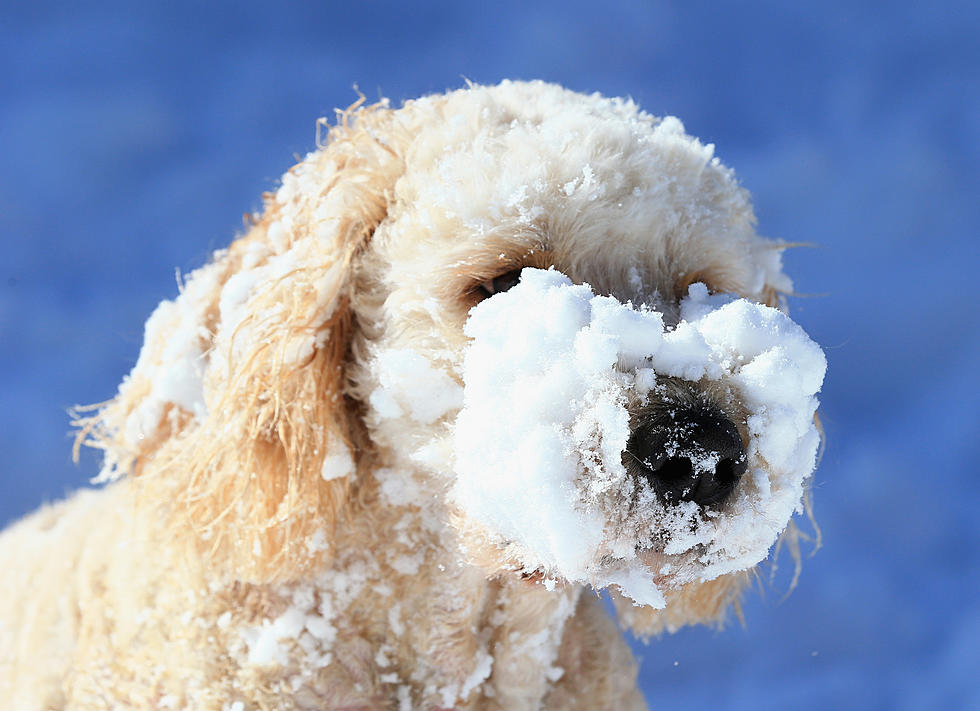
Protect Your Pets In The Snow With These Tips For WNY
Weather poses risks for both humans and their pets. So what are we doing as pet owners to make sure our four-legged friends are safe when it snows?Our pets count on us. They need us to feed them and shelter them, and they're counting on us to do the right thing for them when the snow falls too. There are some simple things that we can do that you might not even think about when it comes to your pets' safety in the cold weather.
According to the ASPCA, there are a couple things that you probably do every day that you shouldn't be doing in the winter:
1. Be careful with your daily walks
It's not that the walks themselves can be that bad, but if there are ice-melting agents on the sidewalks or driveways where you walk and they stick to your pet's paws, they can be dangerous if they get licked off. Wipe your pet's paws carefully when you get home to avoid them ingesting anything dangerous.
2. Help them avoid antifreeze and rock salt
If you have any spills from antifreeze in your driveway be sure to get them cleaned up and make sure your pet avoids the area. While rock salt isn't deadly for your dog, it can make their stomach upset. Do your best help your pet avoid those areas.
3. Don't shave them down to the skin
A lot of people like to have their pets groomed to avoid the snow and ice sticking to their pets. But if you trim them down too close to the skin, will deprive them of the warmth they need when they go outside. If you already have a short-haired pet, consider getting them a sweater or coat to wear to give them a little extra protection.
4. Bathe your pets as little as possible during cold spells
I didn't know about this one but according to the ASPCA, "Washing too often can remove essential oils and increase the chance of developing dry, flaky skin. If your pooch must be bathed, ask your vet to recommend a moisturizing shampoo and/or rinse."
5. If it's too cold for you, it's too cold for your pet
Marv Levy used to always say, "If it's too cold for them, it's just right for us!" It's not the case when it comes to pets. Use yourself as a measuring stick. If you feel like it's too cold outside for you, never leave your pets outside. Yes, they have a thick coat of fur to keep them warm, but even they have a limit. Never leave your pets outside for extended periods of time when it's cold out.
11 Animals You Can't Have as Pets in New York
RANKED: Here Are the 63 Smartest Dog Breeds
LOOK: Here are the pets banned in each state
LOOK: Here Are 30 Foods That Are Poisonous to Dogs
More From 106.5 WYRK









